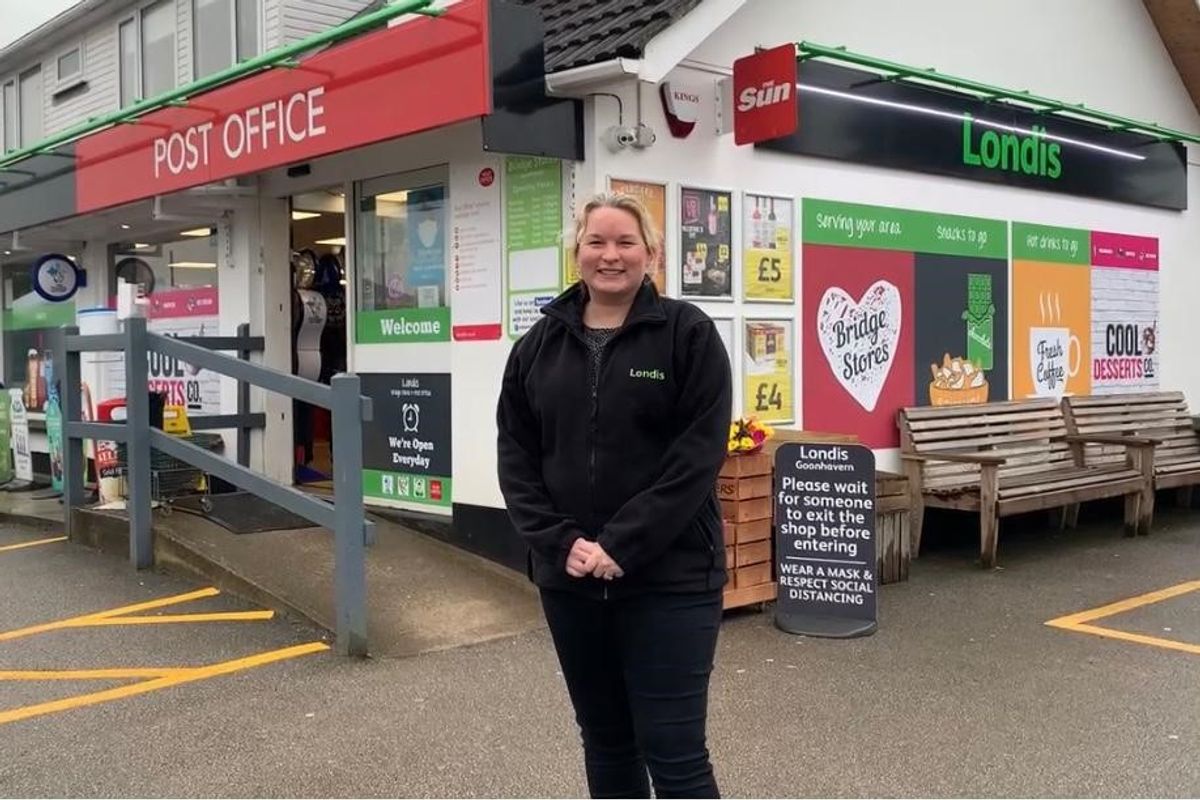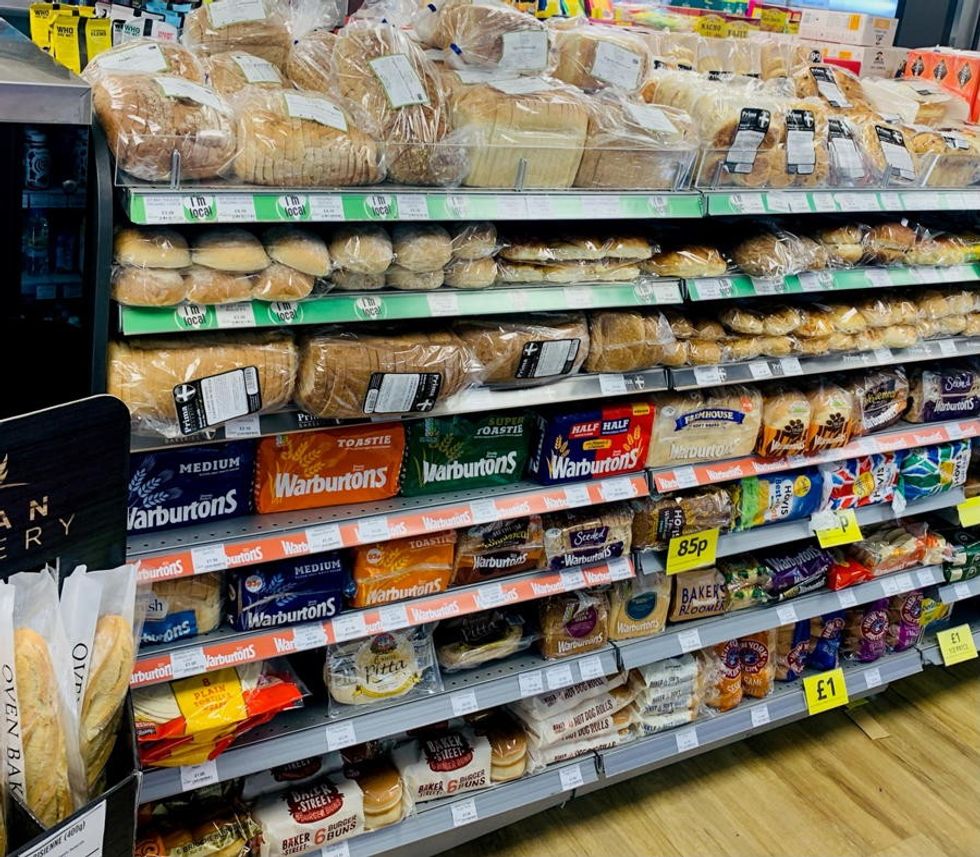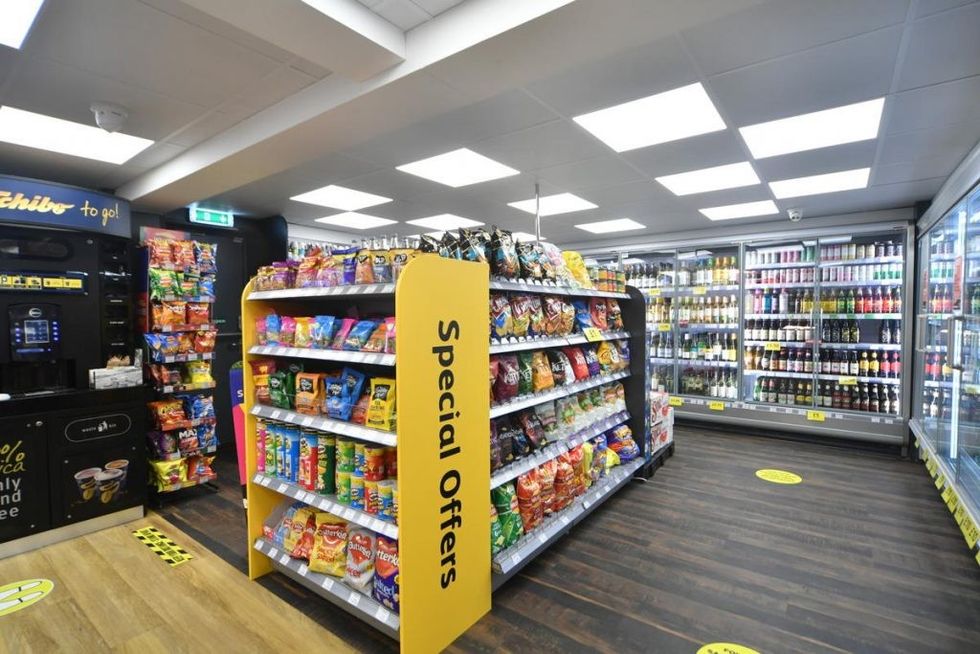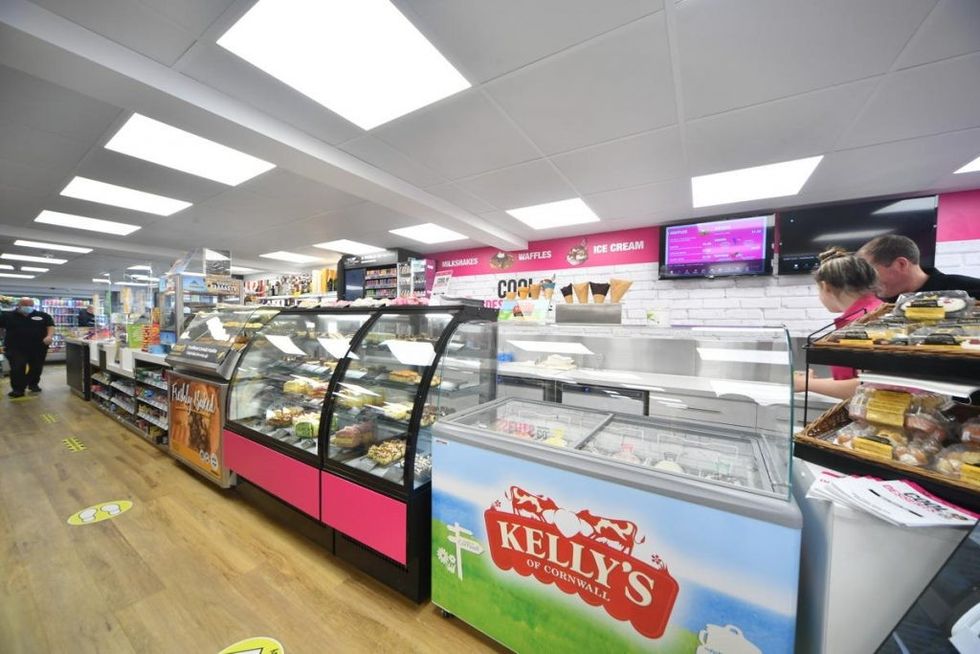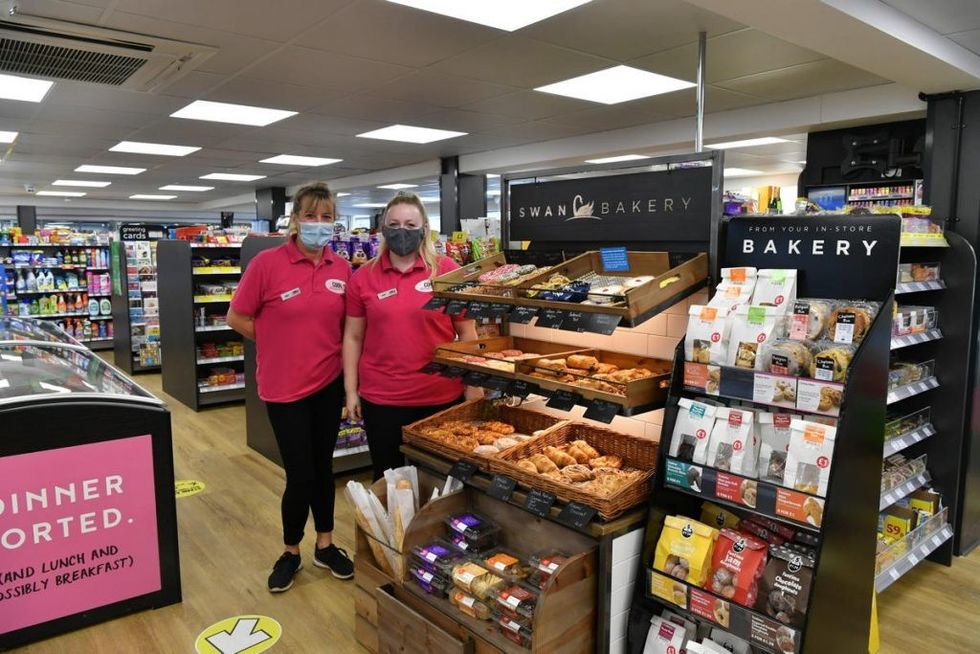Bridge Stores Londis and Post Office in Goonhavern is the only food shop in the Cornish village, and Claire Tonkin, who runs the store, obviously has an enormous responsibility for feeding her community – one which assumed an even bigger dimension when the Covid-19 pandemic began last year. Like her counterparts in convenience retailing, Claire did manage to ensure that the essential supplies were available at the store, and reached out to the vulnerable in the community to home-deliver their grocery shopping, Claire even went for an expansion to the store.
Above all, she never failed to cater to “the Cornish need for a freshly baked pasty in their diet”, as she puts it, and for those who couldn’t make it into store, they provided a door-stop delivery service from their full menu. That invariably sealed a hotly contested category in the 31st Asian Trader Awards in her favour, when she was declared the Bakery Retailer of the Year 2020.
The store has got a bakery area with all the usual Warburtons, alongside local products like Baker Tom's organic bread and cakes. “We're very big on local, so we have a local fresh bakery range,” she says. They have a pastry area as well, with freshly-baked pastry and hot food pasties and things like that.
The store is also a major pit-stop on the road from Newquay to Redruth and enjoys lots of passing trade, especially builders who love their bacon and breakfast baps! “We are like a takeaway really,” she says. “We've got the bonus of the builders and people passing through, and they pick a slice of pizza up or breakfast baps on a deal.”
With the range of services and products they offer – from Tchibo Coffee, Chicago Town Pizza, Dessert Bar,Country Choice Ranges,Kelly's Ice Cream to local Cornish pasties, local bakedcakes, local fresh milk and milk shakes–it’s a go-to destination for anybody driving by.
Another key strength of the store, and something that complements the bakery offering, is food to go. Realising a great opportunity to capitalise on this, they began planning a dedicated and more extensive area to house the category.
“To accommodate everything we wanted in our new offer meant extending the shop into thehouse next door, which lucky enough we owned,” says Claire. Building work started in early 2020 and by April, just as the first national lockdown began, they had a dedicated kitchen and food preparation area to serve approximately 10 meters of food-to-go counter and vending space. “Our offering now includes everything from a freshly baked waffle served with Cornish icecream to a slice of freshly baked pizza,” she adds.
She says the lockdown didn’t see a dip in food-to-go sales, and in fact she saw it as an immediate opportunity for innovation. “The store needed to get bit to be bigger anyway, to be honest, because we were bursting at seams,” she explains. “So, lockdown I think only helped the store in that respect, because we've had to adjust the way we do things.”
The shop extension and refurbishment increased the size of the store dramatically, and sales have been very good from it. “We've employed an extra couple of members of staff and we're just doing very well. Actually, we just adapted well,” she adds. As they included the bakery and food-to-go menu in the home delivery, they have been busier than ever, with the products quickly becoming as important to customers as staple groceries.
With a lot of older customers around them, they haven't worried with any of the delivery apps, but relied on the phone lines for the service. “We've had six (orders) today, this morning, from people who all are well over 70. So it's very highly unlikely that we're going to be able to use an app,” Claire points out. “So we offer that personal service where they ring up, we take the order. And then one of us goes off and often delivers it in the afternoon for them.”
At one point, they were doing over 200 deliveries a week. She agrees that it's quite time consuming, and during the lockdown, with the extension and all, it was indeed quite a lot to do. But she is happy that they got there. “I don't know how but we did it.”
The biggest thing to bear in mind is that during the first six weeks of lockdown they didn’t have a shop as such, as it was being rebuilt, so they supported the whole village from a makeshift counter in their stock room!
Most importantly, Claire says the people have been really appreciative of the efforts they have gone to look after the community and help them out.
“There were times during lockdown when we felt we were one of the emergency services! With over a thousand followers on our social media platforms we could quickly communicate about our home delivery service and at certain points demand almost exceeded capacity,” she says.
Facebook is definitely very big for the store, and Claire is a fan of Instagram also, though they just got under 200 followers there. “We've been very good on Instagram,” she asserts, adding with a laugh, “we're there!” But with over 1200 followers – to put the figure in context, the resident population of Goonhavern is just over 700, according to 2011 census - Facebook is the main social networking site for the store, and she is careful to make good use of it.
“We download the videos from Londis and push them on there, the promotions. Then we advertise all the fresh food and things like that we do in the food to go, what we're cooking that day,” she says.
Claire is now looking to further expand the food-to-go offering to supper. “Come here for everything!” is what she would like to tell her community.
“In the evening, currently, we're only offering a pizza or if anyone wants pasties we can cook for them. But we're looking at getting a fryer maybe and doing some fish and chips. We're looking at an evening offering of food basically,” she says.
While people are gradually starting to come out now, Claire feels that it is still important to make them feel safe inside the store. “As more people get vaccinated, I suppose they're feeling a bit that the pressure is relieved, but I think they like the fact that we've taken the time to create a queuing system outside if needed,” she notes.
“We've got the barrier sets in –one in one out –if needed, we've got the signage everywhere. So we're being proactive on pushing the government guidelines. I think because they know we follow them, people appreciate it and feel safe.”
“So I think a lot of people will continue to use us. I'd hope so anyway, because we've looked after them,” she chuckles. But, on a serious note, she is well aware that the safety measures, or lack thereof, can really trigger violence in-store. They have witnessed such incidents, but unlike many shopkeepers, they were not at the receiving end.
“A few customers did approach other people about not wearing masks and things like that. And unfortunately, someone has thrown coffee in anger at the other customer,” she recounts. “We were the ones that had to deal with it.”
Claire says people are not so apprehensive now, and are starting to relax as we return to some kind of normality. “I just hope we can take off the masks for staff behind the counter soon because they're choking up with those masks on this hard work,” she says.
Leaving aside the stray incidents, Claire has found her customers very co-operative over the last year and their response is something that she cherishes. “The staff had some lovely praise, it's great, and we’ve been really recognised for it by the local people. We've received lovely cards, messages to say, ‘thank you’, and comments on Facebook on local community groups and things like that,” she goes on.
“Many of the residents said that without our shop and delivery service they cannot be sure how they would have sourced food during lockdown.”
Importantly, this has been reflected in sales. “We have gone above and beyond to help people and I think that's gained a lot of new and continued custom. The way we've looked after people during the pandemic, I think it's gone a long way,” she says.
As far as shopper behavior is concerned, Claire agrees they have become more price conscious, and she addresses this with different price ranges and price-marked packs, along with promotions.
“In our store, we have a cheaper range and mid-range. And we try and do a quality fine-food range as well on certain products,” she explains. “Price-marked packs are always good, and the promotions from Londis are excellent. We always promote those. I think that draws a lot of people in.”
When Claire says they are big on local, she really means it. They have recently started doing hot beef and pork items with “local meat from a local farmer just up the road” as part of their food to go offering, and significantly it is this relationship with local suppliers that has held them in good stead in ensuring supplies during the pandemic – also appreciated by customers.
“Maintaining full shelves throughout the pandemic has been the key to our success last year. While multiple supply chains may have initially faltered, our network of local growers and manufacturers augmented with the amazing support of Londis ensured our customers could completely rely on us with no need to venture outside of the village,” she says.
“We've got a lot of local suppliers, people support that as well. Cornish tea, Cornish coffee, Cornish honey even and I think people support us because we support local life.”
The store is a family affair for Claire. Her parents bought the Perranporth Texaco & Londis forecourt 25 years ago and her husband, who comes from a Post Office background, works with her in running the Goonhavern shop. She joined the family business right after the university – she has a sister who moved to Australia - and they bought the Goonhavern store in 2009, which was then a very run down derelict village store. They reopened in 2010 after a complete refurbishment and she has been there ever since. While her dad has now taken a backseat, she and her mom go between both stores.
This background helps Claire a great deal in working with her staff – they employ 25 people across the two sites– to ensure the store maintains the ethos of a family business. “We're adapting,” she says. “If they can't come because they've got an appointment or childcare issues or something, we help them out quite a lot.”
She says nine times out of 10 they'll be able to take an hour off, and for the store it's more of swings and roundabouts. “Because if I need someone, they'll come in, most of the time. I've got some great staff. I really have. You just got to work with them.”
For Claire, the pandemic has raised the bar for the convenience stores and the challenge now is to maintain it. “I think we've gone through the worst of it. So we're on the way out the other side now. [We need to] just carry on as we are.”

